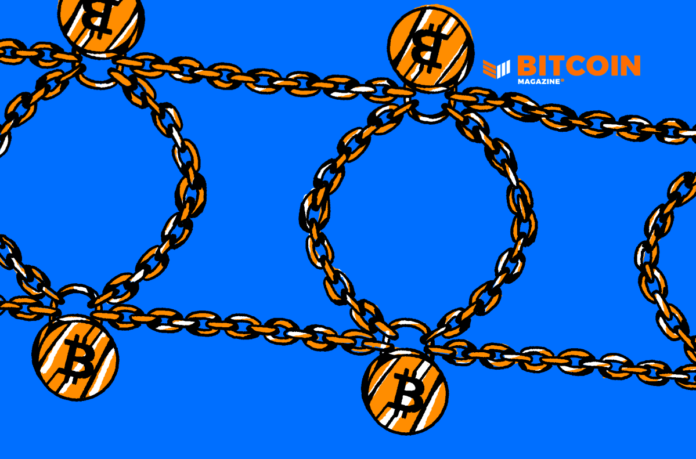This is an opinion editorial by Mark Maraia, a professional development author and Bitcoin researcher.
For years, Bitcoiners have been telling almost everyone who would listen that bitcoin is undervalued. Any Bitcoiner who’s done the research knows that bitcoin the asset is radically undervalued. And I wholeheartedly agree! But even though bitcoin, the asset, is undervalued, it pales in comparison to how much the Bitcoin network is undervalued. I have long held that Bitcoiners, as a group, are undervaluing the Bitcoin network as much or more than no coiners are undervaluing bitcoin the asset.
So, it is with some amusement that I observe the fierce debate between the Bitcoin purists who believe that the use of the Bitcoin network (i.e., the immutable digital ledger) is only for sending value (bitcoin), and the inscriptions, Ordinals and BRC token crowd which says and does otherwise.
In my opinion, what most Bitcoin purists are missing is the difference between bitcoin the asset and the immutable digital ledger, also called “the timechain.” The highest and best use for the immutable ledger is holding and sending value, but it is not the only use, as inscriptions and BRC tokens are showing us.
In addition, I’ve always thought of the network and protocol (the immutable digital ledger) as a place where I can post a message that cannot be changed. Hence, when the Declaration Of Monetary Independence (DoMI) was first published on October 31, 2021, I had a fellow Bitcoiner make permanent note of it in the timechain.
I believe it can be found at block height 707,575. And when we created the 2023 version of DoMI that people signed in Miami at the Bitcoin 2023 event, I had another Bitcoiner create an inscription for it. Both can now be found on the immutable ledger. I totally understand why many want to use the timechain only for money, but I consider it naive to think it will only be used for that purpose.
One Man’s Nonsense Is Another Man’s Meaning
Where I get worked up is in how little the market (all of us) values the timechain. In my opinion, there isn’t a single person on the planet who values the network properly… yet.
What inscriptions and BRC tokens do is increase the perceived value of the timechain. Overall, that’s a plus. Until the network is valued at 250 sats per $1, it’s insanely underpriced!
Even in the era of inscriptions and BRC tokens, the immutable ledger is still radically undervalued and the cost for putting data on it is way below where an intelligent market will put it.
It’s as if Satoshi Nakamoto invented two things: One, a new kind of scarce digital money and two, an immutable ledger to keep track of every satoshi. Using a metaphor to make the point, he/she/they invented a new kind of railcar and the tracks the railcar runs on.
We silly human beings, who are slavishly obsessed with money, give 99.9% of our attention to the asset and almost none to the network (i.e., the timechain) even though the network is as mind blowing as the asset. More impressively and often ignored is this: Nakamoto had to invent a new way to keep time in order to allow the immutable ledger to remain decentralized. Do we celebrate, applaud and value this new method of keeping time? Not really. As of this writing, at block height 794,076, we still just assume and take for granted that this new timekeeping method will keep working for decades. Tick tock, next block.
We all need to be a bit more humble and, I dare say, reverent about this immutable ledger and appreciate that some people will “waste” block space putting stuff in the timechain that will endure as long as it keeps ticking. Who am I to tell another how to value it? Today, every single Bitcoiner undervalues and underpays for the use of this immutable digital ledger.
Consider this carving into a 300-year-old, majestic oak tree: “Satoshi loves the timechain.”
To those who love majestic oak trees, such an inscription might be seen as vandalism or horrific. To the person who did the carving, it might represent a labor of love to have inscribed that message into the tree. The tree doesn’t care, only people do.
Rather than waste any more human energy arguing about inscriptions and Ordinals, I’m going to take my cue from Bitcoin’s timechain. The timechain is absolutely neutral about how we humans make use of it in the same way that the tree does not care what carvings you make into its trunk.
This is a guest post by Mark Maraia. Opinions expressed are entirely their own and do not necessarily reflect those of BTC Inc or Bitcoin Magazine.
Credit: Source link






















 Bitcoin
Bitcoin  Ethereum
Ethereum  Tether
Tether  Solana
Solana  XRP
XRP  Dogecoin
Dogecoin  USDC
USDC  Lido Staked Ether
Lido Staked Ether  Cardano
Cardano  TRON
TRON  Avalanche
Avalanche  Shiba Inu
Shiba Inu  Wrapped stETH
Wrapped stETH  Wrapped Bitcoin
Wrapped Bitcoin  Toncoin
Toncoin  Sui
Sui  WETH
WETH  Bitcoin Cash
Bitcoin Cash  Chainlink
Chainlink  Pepe
Pepe  Polkadot
Polkadot  LEO Token
LEO Token  Stellar
Stellar  NEAR Protocol
NEAR Protocol  Litecoin
Litecoin  Aptos
Aptos  Wrapped eETH
Wrapped eETH  Uniswap
Uniswap  USDS
USDS  Cronos
Cronos  Hedera
Hedera  Internet Computer
Internet Computer  Ethereum Classic
Ethereum Classic  Bonk
Bonk  Bittensor
Bittensor  Render
Render  Ethena USDe
Ethena USDe  POL (ex-MATIC)
POL (ex-MATIC)  WhiteBIT Coin
WhiteBIT Coin  Dai
Dai  MANTRA
MANTRA  Artificial Superintelligence Alliance
Artificial Superintelligence Alliance  Arbitrum
Arbitrum  dogwifhat
dogwifhat  Monero
Monero  Stacks
Stacks  OKB
OKB  Filecoin
Filecoin 
